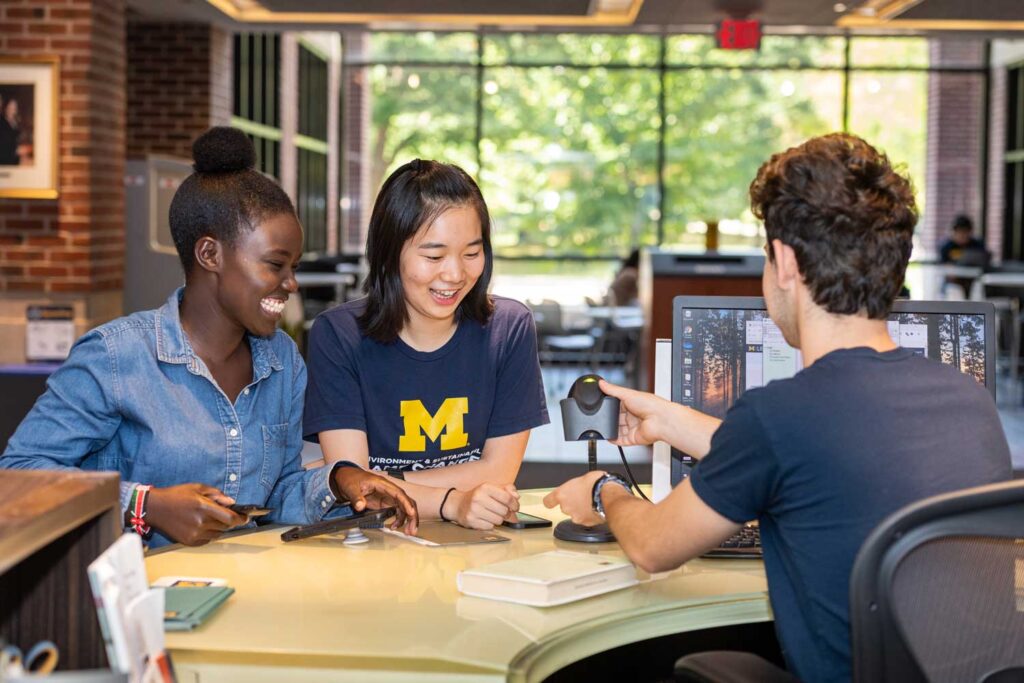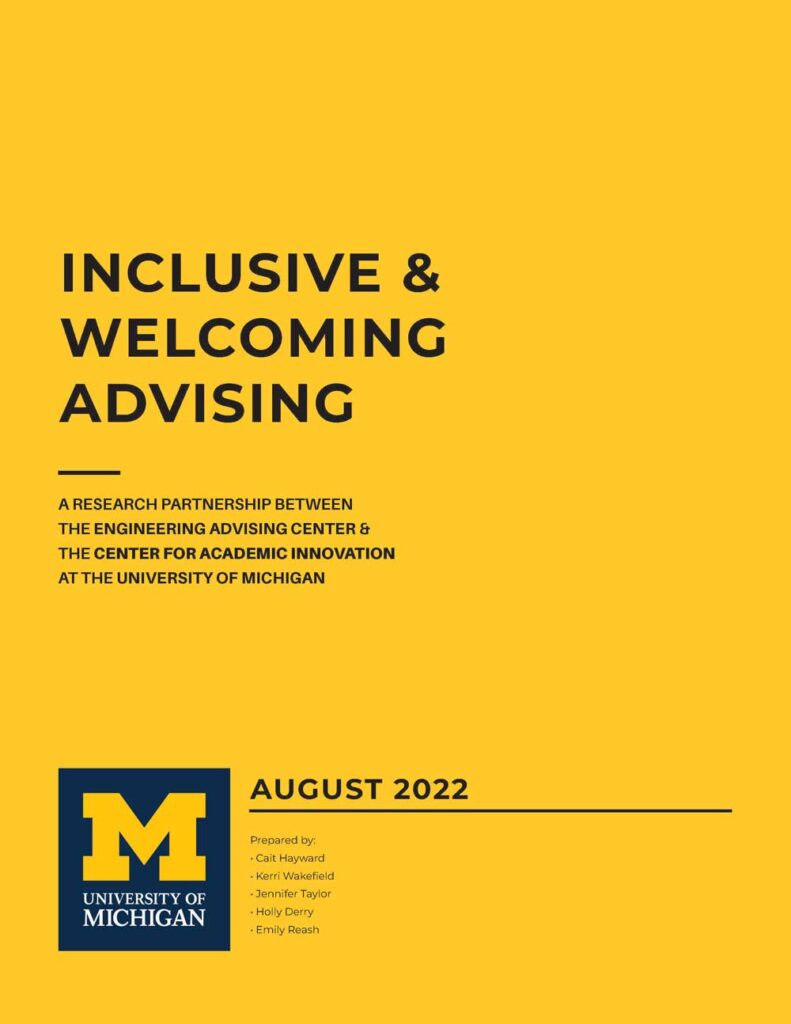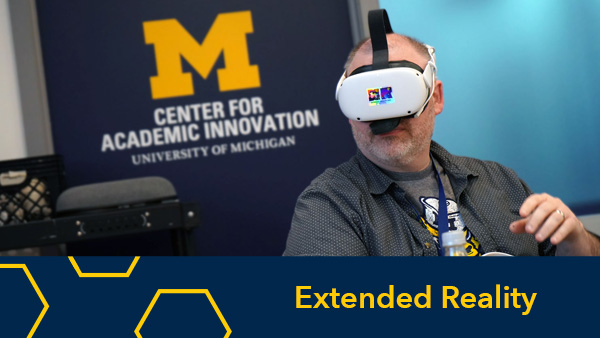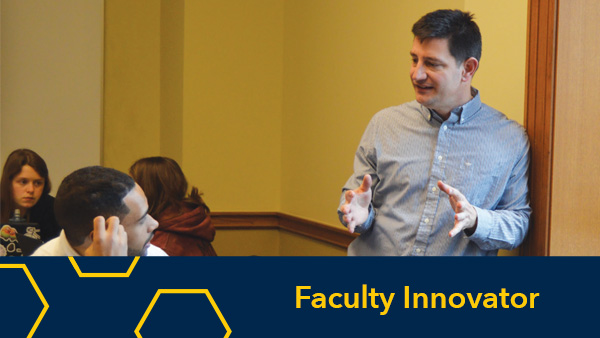
Kerri Wakefield, Director of the Engineering Advising Center and Intermittent Lecturer in Education, School of Education
Jennifer Taylor, Academic Advisor in the Engineering Advising Center
A report from the University of Michigan explores the advising experience of various student groups and how students who identify as part of underrepresented groups report feeling less comfortable meeting with their advisors, were less likely to report advisors cared about their academic success, respected their identities, or asked about their background and campus experiences.

The report, Inclusive & Welcoming Advising is a research partnership between the Engineering Advising Center and the Center for Academic Innovation. As part of the team’s efforts, researchers analyzed survey responses from 377 undergraduate students across U-M to sensemake their perceptions and experiences with advising.
Kerri Wakefield, director of the Engineering Advising Center, and Jennifer Taylor, academic advisor at the Engineering Advising Center, teamed up to answer some essential questions about the report and its findings.
Tell us a little bit about what your goals were for this initiative.
We wanted to dig deeper into the academic advising experiences of U-M undergraduate students, with a particular focus on those in underserved groups (e.g., those who identify with underrepresented racial/ethnic groups; those who are first generation, low income, or LGBTQ+; and those who have disabilities or have transferred). We were concerned that some groups of students may be less likely to reach out to advisors or have a less positive experience with advisors, so we wanted to determine whether these disparities exist so that we can remedy them.
How did you approach figuring out what to ask students about?
First, we reviewed existing U-M survey tools to determine how advising services are currently assessed. We looked for the gaps in these tools, specifically related to DEI. We then drafted quantitative and qualitative questions to capture differences in students’ perceptions of their advising experiences. For example, we asked whether their advisors use inclusive language, respect their identities, and ask about their background and campus experiences. We piloted a draft of the survey with student focus groups and refined the questions based on their feedback.
What did we learn?
Although we did not detect differences in students’ overall satisfaction with their advising experiences, we did detect some differences related to certain aspects of advising between subgroups. Students who identified as underrepresented minorities (URMs) reported being less comfortable in meetings with advisors. They were also less likely to report that their advisors cared about their academic success, respected their identities, or asked about their background and campus experiences than their non-URM peers. Male students were less likely to report that advisors used inclusive language and respected their identities compared to their female peers.
What were you surprised by in the findings?
Transfer students were more likely than students who started as first-years to report that they felt comfortable with advisors, that their needs were met in advising meetings, and that advisors asked them about their background and campus experiences. We were pleasantly surprised by this because transfer students tend to be an underserved group. First generation and low income students were more likely than their peers to report that advisors helped them navigate academic challenges, which was also a welcome surprise, although first gen students did report feeling less respected by advisors than continuing generation students.
Where should we go from here?
This study has a number of implications for advisors and advising administrators as well as future research. We would like to see more advisor training opportunities, particularly on DEI topics. Perhaps some of that training should be required as opposed to optional. We would also like to see expanded assessment of advising services to increase the quantity and quality of data we are collecting about students’ advising experiences. Finally, we support providing more time, funding, and technical support for advisors and administrators to engage in research projects such as this one.
What are you most excited about for advising initiatives on campus in the coming year?
There are a number of exciting things on the horizon for the U-M advising community. We are drafting advising learning outcomes to capture the knowledge, skills, and values that students should develop as a result of their interactions with advisors. We are also taking a closer look at our existing advising technologies and potential new tools to help advisors be as informed and proactive as possible. In addition, we continue to build bridges with our advising colleagues on the Dearborn and Flint campuses to collaborate and learn from each other.
We hope you’ll check out all the details from this research in the linked report.
Kerri Wakefield (she/her) is Director of the Engineering Advising Center at the University of Michigan. She serves on the Executive Board for the Advising Council at the University of Michigan (ACUM) as well as the advisory boards for NACADA’s Advising Administration Community and Administrators’ Institute.
Jennifer Taylor (she/her) is an Advisor in the Engineering Advising Center at the University of Michigan. She is currently the Chair of the Technology Committee for the Advising Council at the University of Michigan, and is the appointed Technology lead for the Engineering Advising Center.


